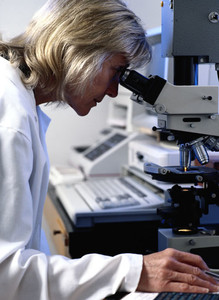Authors Schellekens and Moors comment on the response from EMA’s Biosimilar Medicinal Products Working Party to questions that they raised regarding EMA’s comprehensive biosimilar regulatory pathway [1]. While the authors express their appreciation of the openness of EMA in the way it has pioneered the biosimilars pathway in Europe, they still argue that EMA has failed to show the scientific need for biosimilar comparability [2].
Biosimilar comparability debate continues
Biosimilars/Research
|
Posted 14/09/2012
 0
Post your comment
0
Post your comment

The biosimilars pathway includes the need for new clinical trials and comparability studies that demonstrate quality, efficacy, and safety. Schellekens and Moors, however, have questioned the need for EMA’s comparability requirements, claiming that clinical trials alone are sufficient. The comparability requirements have also been accused of proving to be a barrier for the development of clinically superior compounds [3].
In their reply the authors Schellekens and Moors highlighted six areas where they disagree with EMA’s response to their arguments against the comparability exercise:
Quality ‒ comparability
Schellekens and Moors argue that clinical studies for biosimilars are always needed because of the complexity of biological products and the lack of tools for their complete characterisation therefore if comparability and clinical studies come to the same conclusion what is the point of comparability.
Where EMA highlighted biosimilars that were rejected as examples of the need for comparability data, Schellekens and Moors argue that these applications showed many other deficiencies and would not have been accepted if submitted as new biologicals without any comparative data.
Regarding the claim by EMA that the demand for comparability in quality is not hindering biosimilars developers from innovating and improving their products because the originator companies are also continually improving their products was disputed by Schellekens and Moors. They highlighted the fact that there are products on the market with high levels of aggregation, which may cause unwanted immunogenicity; and development of a biosimilar with reduced aggregation could easily solve this. However, this would produce different potency and dosing, which would not be allowed under current comparability requirements.
Pharmacokinetics – comparability
In the EMA response it is stated that ‘pharmacokinetics is normally a very sensitive parameter for establishing biosimilarity’. However, Schellekens and Moors argue that this is not the case ‘as pharmacokinetics of biologicals is considered difficult to evaluate, highly variable between individuals and often not relevant for clinical activity’. They also mention that in fact EMA recognises the difficulties associated with comparative pharmacokinetics giving as an example the European Public Assessment Report for Avonex (interferon beta 1a), where ‘the pharmacokinetics was considered highly variable due to the large inter-subject variability and the poor assay sensitivity, making pharmacokinetic comparisons impossible’.
Finally, Schellekens and Moors conclude by stating that EMA in their response actually agree ‘that most of the comparative clinical studies with the current biosimilars did not meet the guidelines’, confirming their belief that such studies are unnecessary for the evaluation of the safety and efficacy of a biosimilar.
Schellekens and Moors conclude that ‘future amendments of the European regulatory guidelines on biosimilars should be based on the specific issues of biologic[al]s such as immunogenicity and their lack of intrinsic toxicity.’, and suggest using potency assays and predictive tools for immunogenicity to ensure a safe and effective biosimilar.
Related articles
EMA responds to questions over biosimilar comparability
Small molecule versus biological drugs
Current and future issues surrounding biosimilars
References
1. Schneider CK, Borg JJ, Ehmann F, et al. In support of the European Union biosimilar framework. Nat Biotechnol. 2012;30(8):745-8.
2. Schellekens H, Moor EHM. Reply: in support of the European Union biosimilar framework. Nat Biotechnol. 2012;30(8):748-9.
3. GaBI Online - Generics and Biosimilars Initiative. EMA comparability studies limiting biosimilar success [www.gabionline.net]. Mol, Belgium: Pro Pharma Communications International; [cited 2012 Sep 14]. Available from: www.gabionline.net/Biosimilars/Research/EMA-comparability-studies-limiting-biosimilar-success
Permission granted to reproduce for personal and educational use only. All other reproduction, copy or reprinting of all or part of any ‘Content’ found on this website is strictly prohibited without the prior consent of the publisher. Contact the publisher to obtain permission before redistributing.
News
FDA approves Poherdy (first interchangeable pertuzumab) and Armlupeg (pegfilgrastim) biosimilars
EMA recommends approval for insulin glargine biosimilar Ondibta and denosumab biosimilar Osqay
General
Samsung Bioepis wins Pyzchiva case; Regeneron patent rulings threaten foreign biosimilars
Chinese biosimilars go global: growth, partnerships, and challenges
What is the future for the US biosimilar interchangeability designation

Biosimilars/Research Posted 05/06/2025
Biosimilar clinical efficacy studies: are they still necessary?

Biosimilars/Research Posted 27/05/2025
The best selling biotechnology drugs of 2008: the next biosimilars targets








Post your comment